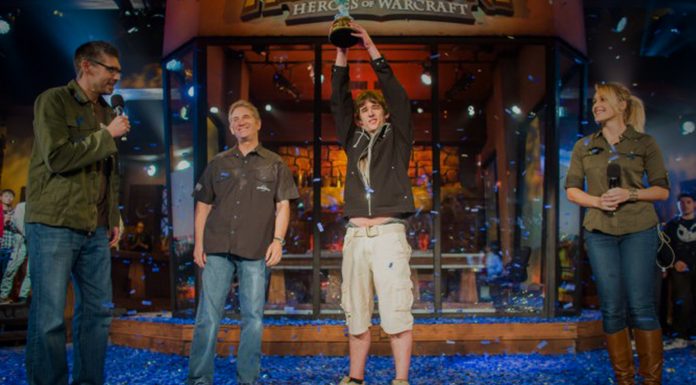We’ve covered esports figures and their professional personas before. While many athletes come under fire for what they say and do outside of the game, personalities in the esports world are a bit more likely to be repeat offenders in this regard. Many people involved in the esports industry are younger, and unless they’re part of one of the larger organizations, don’t have access to image coaches or PR training. Like many Millenials, young esports professionals are discovering that their behavior on social media can affect their careers for years to come. Case in point: the ongoing frenzy surrounding every PPD tweet.
Politics have never been a more polarizing issue in both the US and Europe. People who normally wouldn’t be motivated to pen a politically charged tweet have been moved to express their views.
ReDeYe is one of several figures in the esports world who often draws ire for his political tweets. A UK citizen, ReDeYe follows US politics and has publicly criticized the Trump administration on numerous occasions.
It's the best comedy on twitter. pic.twitter.com/SBuntJX202
— ReDeYe (@PaulChaloner) March 28, 2017
Some of ReDeYe’s detractors have argued that he should keep his personal views away from his involvement in esports. But our personal politics are part of who we are, and ReDeYe uses his Twitter account for all parts of his life–whether it be tweeting pictures of his day-to-day life or posting updates and analysis about tournaments. Of course, he also seems to enjoy arguing with people who disagree.
You May Like
It can be a tricky situation to navigate. If you express yourself candidly, you run the risk of alienating people and putting a target on your back. Just ask Nahaz about that one. On a personal note, I often feel conflicted about this as well. At my day job, I tend to shy away from wearing clothing about social issues–in the modern workplace, it’s often still unclear about what’s considered acceptable and professional. As strongly as I may feel about some causes, I have no interest in tanking my career with a poorly chosen moment for self-expression.
Maybe that makes me part of the problem.
There are also many shades of gray when it comes to self-expression. Posting a political tweet on a personal Twitter account is one thing, using airtime at a tournament to promote one’s personal views is another thing entirely (and this hasn’t happened yet, at least not to my knowledge).
Esports Politics by Region
Esports is a strange beast. Since the sport is played via the internet, teammates and opponents don’t have to reside in the same country or even the same part of the world to play together. Boundaries between countries are perhaps the most fundamental part of our modern political infrastructure, but these imaginary lines simply aren’t as powerful in a strictly digital environment. A player’s nationality can come into play when they’re trying to obtain visas or travel, but when you look at teams from the CIS region, you’ll notice plenty of Russian and Ukranian players competing together. In esports, nationality simply doesn’t matter as much as what you’re able to bring to the game.
In many ways, it’s refreshing. Players come together at LANs and hang out, despite the fact that their respective countries of origin might be involved in trade disputes or even wars with each other.
The Political Climate in Esports
Esports is a mix of counter-culture and conservative culture. The Gamergate debacle brought out the worst on both extremes of the spectrum. The internet never forgets, neither. Using Nahaz as an example, one comment about political correctness can turn into a circus show, overshadowing all other aspects of someone’s public persona. Nahaz is a professor at a Canadian university and does some cool stuff with Dota statistics on his YouTube channel and at LAN events. Unfortunately, he was re-branded by many as an SJW, which gets brought up every time there’s a discussion about him. Ultimately, that’s the risk you take when you decide to bring politics into the digital arena.
[I’d like to make it clear that I’m not saying Nahaz shouldn’t have said anything. He took a risk by bringing up a topic that he felt strongly about, and that’s cool, man.]
When bringing politics into other realms of your life, there’s one important thing to remember: any opinion you hold will be unpopular with a decently large subset of people in the esports realm. The only thing that everyone can agree on is this: 6.83 Sniper was a dark time for Dota 2.
















